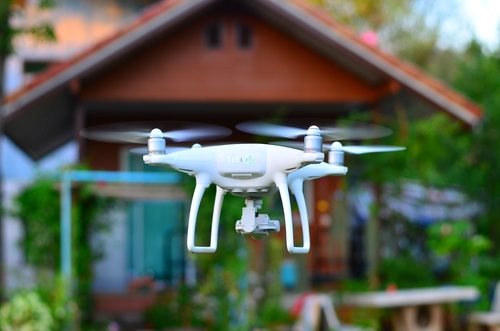Does homeowners insurance cover my drone?

In most cases, your drone is considered a hobby or model aircraft and is covered under the personal property section of your homeowners or renters insurance policy.
If you recently purchased a drone for recreational purposes you may be wondering if your homeowners insurance protects your latest toy. Drones often come with a bit of learning curve and if you manage to put your new drone through a neighbors window or it ends up being stolen you could be turning to your homeowners insurance to help cover the costs.
Let’s have a quick look at whether or not a drone is covered by your policy as well as any limitations that may apply.
Does My Insurance Cover My Drone?
While it can vary by insurance company, in the majority of cases, your drone is considered a hobby or model aircraft and is covered under the personal property section of your homeowners or renters insurance policy. It should be noted that this only applies to recreational drones, if you are using it in a commercial capacity it would not be covered.
Again, terms vary but in most cases, the drone must be used as a recreational device at least 90 percent of the time. If you are using the drone for commercial purposes such as taking real estate photos or photos for weddings or other special events this would be considered a business use and would not be covered by homeowners or renters coverage.
Damages would be covered against the perils listed in the policy, which includes dangers such as fire, wind, theft and even vandalism. Flood damage is never covered under a standard homeowners policy so if your drone was destroyed in a flood you would not be covered. Damages are covered up to your policy limits and your deductible will apply.
What About Liability?
The liability portion of your homeowner or renters insurance should cover any liability issues up to your policy limits. However, liability protection can vary between insurers so it is a good idea to contact your agent to make sure that your liability protection extends to damage done by a drone.
Liability protection should cover any damage that you do to a person or their property with your drone. As an example, if you manage to fly your drone into a person and it results in injuries, your liability coverage would help with their medical costs as well as any lawsuits that arise out of the accident.
In addition to protecting you from physical damage, your insurance policy should also protect you from invasion of privacy claims due to your drone recording images or sounds that they shouldn’t have. The liability protection only extends to incidents that were unintentional though, if you are spying on your neighbors on purpose there will be zero coverage.
As long as the breach of privacy was an accident your policy should pay for legal costs as well as any settlements, up to your policy limits.
There Can Be Coverage Limits
In most cases, your drone will be covered due to a covered peril up to your policy limits, minus your deductible. Some policies do have limits on expensive personal property such as jewelry, electronics, collectibles and other high value personal property.
While these policy limits vary, it commonly comes in around $1,500. It is a good idea to contact your insurer to see if your policy puts coverage limits on drones. Remember, insurance, especially homeowners insurance should be saved for major incidents. If the cost to replace your drone is close to your deductible amount it makes no sense to make a claim on your policy.
In most cases, unless you have a very expensive drone it may make more sense to cover the loss out of pocket as your insurance premium will most likely be headed up once you make a claim on your policy.
When it comes to liability coverage, your policy should pay out up to your coverage limits but in the event of a lawsuit it is possible that your coverage limits will not be enough and you could be on the hook for any additional losses that go beyond your policy limits.
If you have significant assets to protect it may make sense to purchase an umbrella policy to fully cover your liability risks. Umbrella policies are typically sold in $1 million increments and are very affordable.
A Few Tips
Here are a few tips for drone owners:
- Any recreational drone that weighs more than 0.55 pounds needs to be registered with the FAA. You can register online and the fee is $5.00. You should have your registration on your person whenever you are operating your drone.
- Any unmanned aircraft that weighs over 55 pounds must be specially registered with the FAA.
- Never fly a personal drone above 400 feet and always make sure you can see it when you are operating it.
- Never fly your drone within 5 miles of an airport without first contacting the local airport control tower. Always stay away from any restricted areas such as military bases or other high profile areas.
- Notify your neighbors so your drone doesn’t cause any unnecessary alarm in the neighborhood.
- Avoid flying around crowds where it could be easy to hit people or damage property if your drone malfunctions or you make an error flying it.
